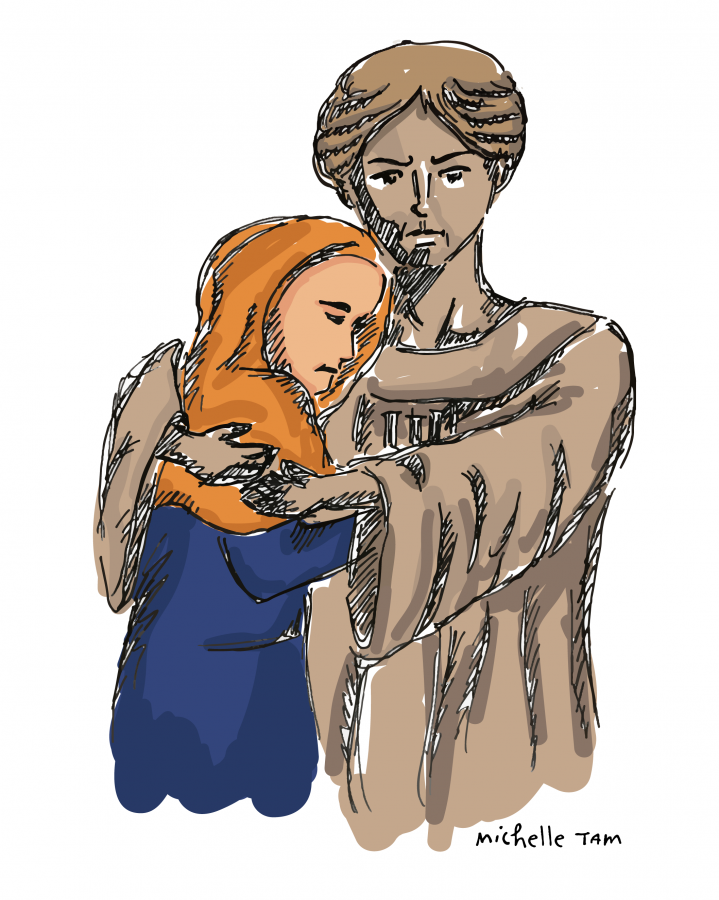Rally against the spread of Islamophobia
February 2, 2017

Another white man committed a violent crime against a marginalized group.
Some variation of this headline, most would agree, has occurred far too often recently. Unfortunately, we can assume that this problem will become more prevalent with a president who continually signs executive orders fueled by hate and ignorance, further fanning the flames of Islamophobia.
This past Sunday, a 27-year-old Canadian man named Alexandre Bissonnette invaded a Quebec City mosque and committed a mass murder that left six people dead and wounded multiple others. Despite the fact that Canadian Prime Minister Justin Trudeau denounced the crime as a “terrorist act” against Muslims, Bissonnette has not been convicted of any terrorism-related charges.
Canada generally has fewer mass murders than us, its North American neighbors. The last time a mass murder was committed within Canadian borders was August 2016, and most have been within private circumstances, meaning that they were not a threat to the Canadian public.
Get The Daily Illini in your inbox!
This most recent event is concerning because it seems the psychological effects of Donald Trump’s executive order banning refugees from predominantly Muslim countries may be stretching across borders, even in nations that are known for welcoming refugees with open arms.
Though Bissonnette’s was clearly a prejudice-fueled crime, he has not been charged, aside from counts of first degree murder and attempted murder. This unearned leniency furthers the claim that North American governments won’t classify a public murder committed by a white, Christian man as terrorism regardless of its intent or brutality.
In June 2015, another white, Christian man shot up a predominantly black church in Charleston, South Carolina. Despite admissions of the crime being racially charged, Dylann Roof, like other white mass murderers, was portrayed in the media not as a terrorist, but rather as a uniquely troubled individual.
Other acts of violence committed in the United States by Muslims have immediately been labeled as terrorism. Authorities and the media are quick to assume that Muslim suspects are terrorists, while white men are carefully judged on a case-by-case basis.
According to the CATO Institute, people from the seven countries targeted by Trump haven’t killed a single American in terror attacks on U.S. soil since, at least, 1975. It’s safe to conclude that this is because the executive order is a matter of racial prejudice rather than a real concern for safety.
Trump’s executive order has been rallied against all over the country, including on campus this past Monday. Protesters marched through the Main Quad and gathered at the Alma Mater, where guest speakers told impromptu stories of how they have been affected by the ban.
One man who recently became engaged is currently separated from his fiancée, a graduate student in Ohio, because she cannot return to the U.S. The speakers were rightfully angry at the injustices they have faced.
They shared aggressions based on their religion that they experience daily. And they also shared fears that Trump’s brazen executive orders will simply worsen their struggles.
The shooting at the Quebec City mosque likely won’t come as a shock to the American public, but hopefully Canadians will rally around this act of terror and join in the fight against the Trump administration’s harmful executive decisions.
If we pass off this racially motivated crime as a random attack rather than terrorism, we are simply adding to the hundreds of examples of Islamophobia that fuel undue violence toward Muslims.
Jamie is a freshman in Media.
[email protected]







